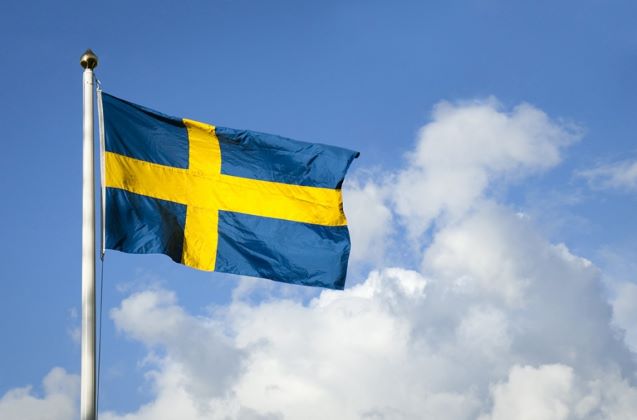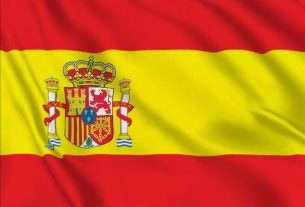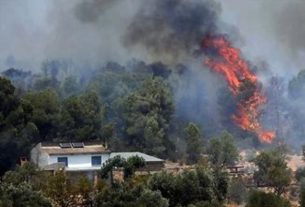Dozens of people have stormed the compound of the Swedish embassy in Iraq’s capital, Baghdad, after a Quran was burnt during a protest in Sweden.
Salwan Momika, said to be an Iraqi living in Sweden, set fire to a copy of Islam’s holy book outside Stockholm’s central mosque on Wednesday.
The Quran burning was condemned by many Muslim-majority countries.
A crowd gathered outside the embassy in Baghdad on Thursday after a powerful cleric called for an “angry” protest.
Videos posted on social media appeared to show dozens of protesters walking inside the courtyard.
An AFP news agency photographer at the scene said the crowd briefly entered the building and remained inside for about 15 minutes before leaving when local security forces were deployed.
Muslims consider the Quran the sacred word of God and view any intentional damage or show of disrespect towards it as deeply offensive.
The Quran burning on Wednesday took place as Muslims around the world celebrated the first day of Eid al-Adha, one of the most important festivals in the Muslim calendar.
Swedish police had given Mr Momika a permit for the protest, in accordance with free-speech laws. But later police said the incident was being investigated for incitement of hatred.
The incident has also sparked anger in other Muslim-majority nations including Turkey – a Nato member which has a say over whether Sweden also gains membership.
Turkey – which was also angered by a Quran burning protest earlier this year – said it was “unacceptable” to allow such “anti-Islamic actions” to take place “under the pretext of freedom of expression”.
President Recep Tayyip Erdogan said: “We will eventually teach the arrogant Westerners that insulting Muslims is not freedom of thought.”
Middle Eastern nations including Iraq, Iran, Saudi Arabia and Egypt strongly criticised the burning.
Morocco and Jordan have recalled their ambassadors to Stockholm, and Morocco has also summoned Sweden’s charge d’affaires in Rabat.
Iraq said the incident was “a reflection of a hateful aggressive spirit that has nothing to do with freedom of expression.”
Iran echoed Iraq’s criticism, calling the act of burning the Quran “provocative” and “unacceptable”, while Egypt described it as a “shameful” act which was especially provocative as Muslims mark Eid al-Adha.
Saudi Arabia – the destination of around 1.8m worshippers on the annual Hajj pilgrimage this week – said “these hateful and repeated acts cannot be accepted with any justification.”
Sweden’s Prime Minister Ulf Kristersson said the Quran burning was “legal but not appropriate”.
Plans to burn copies of the Quran have sparked riots in Sweden in recent months.
Police had rejected similar protest applications recently, but courts then ruled that they should be allowed on freedom of expression grounds.__BBC.com





